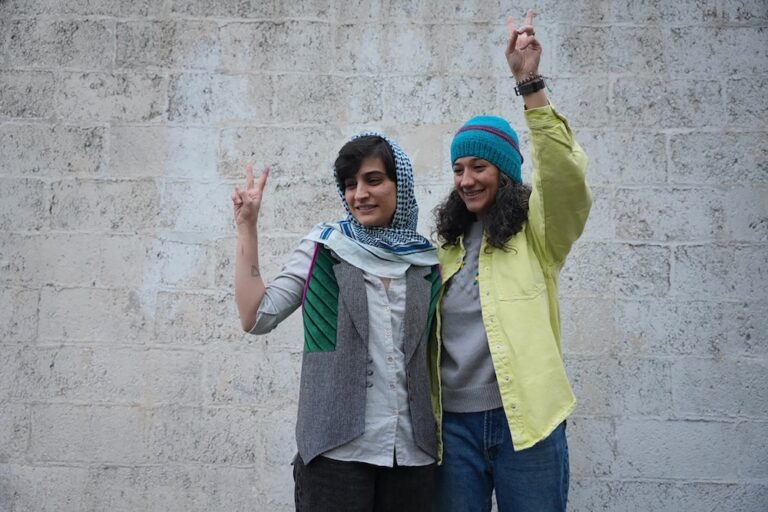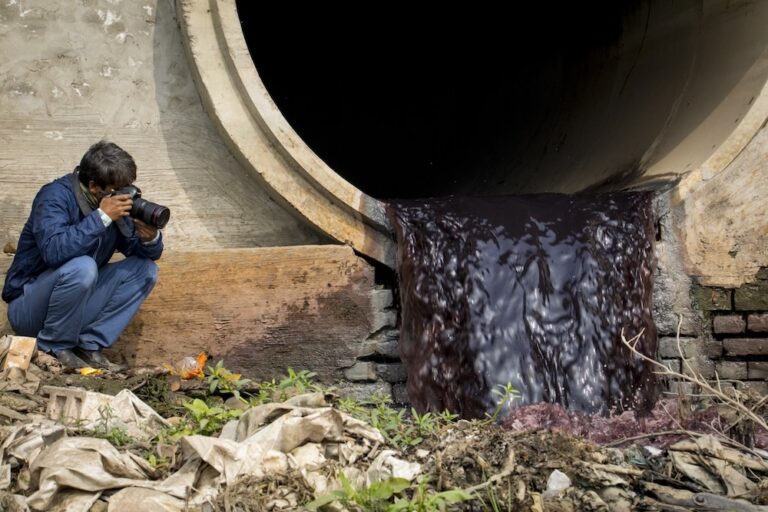(WiPC/IFEX) – The following is a 29 January 2008 WiPC report: DEFAMATION AND ‘INSULT’: WRITERS REACT FREE EXPRESSION, CORRUPTION AND CRIMINAL DEFAMATION IN AFRICA: HOW CRIMINAL DEFAMATION, INSULT AND LIBEL LAWS ARE USED TO SILENCE AFRICAN JOURNALISTS The Writers in Prison Committee of International PEN today makes available the sixth and final in a series […]
(WiPC/IFEX) – The following is a 29 January 2008 WiPC report:
DEFAMATION AND ‘INSULT’: WRITERS REACT
FREE EXPRESSION, CORRUPTION AND CRIMINAL DEFAMATION IN AFRICA: HOW CRIMINAL DEFAMATION, INSULT AND LIBEL LAWS ARE USED TO SILENCE AFRICAN JOURNALISTS
The Writers in Prison Committee of International PEN today makes available the sixth and final in a series of reports as part of its campaign on the use of insult and defamation laws to suppress writers and journalists worldwide. The report looks at how criminal defamation legislation is used in Africa to silence print journalists who criticise powerful individuals or bodies, particularly those connected with governments, or who investigate and report on state corruption and mismanagement, and other abuses of power. It takes a closer look at four African countries where current use of criminal defamation laws is particularly rife – Democratic Republic of Congo, Ethiopia, Senegal and Tunisia – and shows how such laws can impact on individual journalists. The report also provides an overview of the wider movement pushing to decriminalise defamation in Africa. The aim is to encourage PEN members worldwide, and other interested parties, to join this campaign (see Suggested Action below).
In Africa, as worldwide, the use of criminal defamation laws remains commonplace, despite the growing consensus that such laws constitute an unjustifiable restriction on freedom of expression, and numerous human rights standards calling for their abolition. At least 90 percent of African countries retain such laws, which, far from being dormant, are employed on a regular basis. To illustrate, from July 2006 to November 2007, PEN recorded some 67 cases of criminal defamation involving 90 writers, mainly journalists, in 27 countries in the region – including a number of countries which have long promised to abolish such legislation.
All of these cases, without exception, involved journalists who criticised state or other powerful figures, and/or investigated or exposed corruption, or other malpractice by officials. For speaking out, all have been countered with a lawsuit, or the threat of one, bringing not only inconvenience and financial penalty, but also arrest, months or years in prison, or at the very least the legal implications and social stigma of a criminal prosecution. Alarmingly, there are indications that the use of criminal defamation laws in Africa, far from diminishing, is actually becoming more widespread.
In the Democratic Republic of Congo (DRC), editor Patrice Booto was detained for nine months in 2005-06 for ‘offending the head of state’ and ‘insulting the government’; he served seven of these months prior to his conviction. His crime: publishing an article questioning a large donation made by President Kabila to neighbouring Tanzania. More than a year after the country’s first elections since independence, held in November 2006, journalists accused of defamation are still frequently detained for weeks or months without trial and sometimes without charge. In late 2007, the government signalled its intention to step up its use of insult law.
In Ethiopia, editor Wesenseged Gebrekidan was imprisoned for a total of 21 months from November 2005 on years-old defamation charges, combined with anti-state charges. He was just one of some18 journalists and two academics arrested and put on trial as part of a generalised government crackdown in the aftermath of post election violence. Meanwhile, convictions for alleged defamation by journalists continued apace.
In Senegal, despite President Wade’s 2004 promises to repeal criminal penalties for press offences, at least nine journalists faced criminal defamation charges in the period reviewed, with the number of related arrests and lawsuits escalating in late 2007. Those journalists still on trial – including Abdou Latif Coulibaly, Pape Amadou Gaye, Moussa Guèye and Pape Moussa Doucar – face potential prison sentences if convicted, in some cases up to five or 10 years. In all cases, the charges relate to the journalists’ reporting on the President or government bodies.
In Tunisia, human rights lawyer and activist Mohammed Abbou spent two and a half years in prison for an internet article that criticised the Tunisian government’s alleged use of torture; he was released in July 2007. A month later, editor Omar Mestiri narrowly escaped a prison sentence of up to three years for criticising a lawyer allegedly convicted of fraud. Both men continue to suffer official harassment by other means, as do countless other journalists and human rights defenders in the country.
The full report can be emailed to you directly, or a print version sent by mail on request, by contacting: tamsin.mitchell@internationalpen.org.uk or patricia.diaz@internationalpen.org.uk


